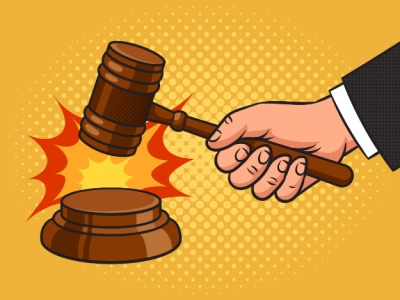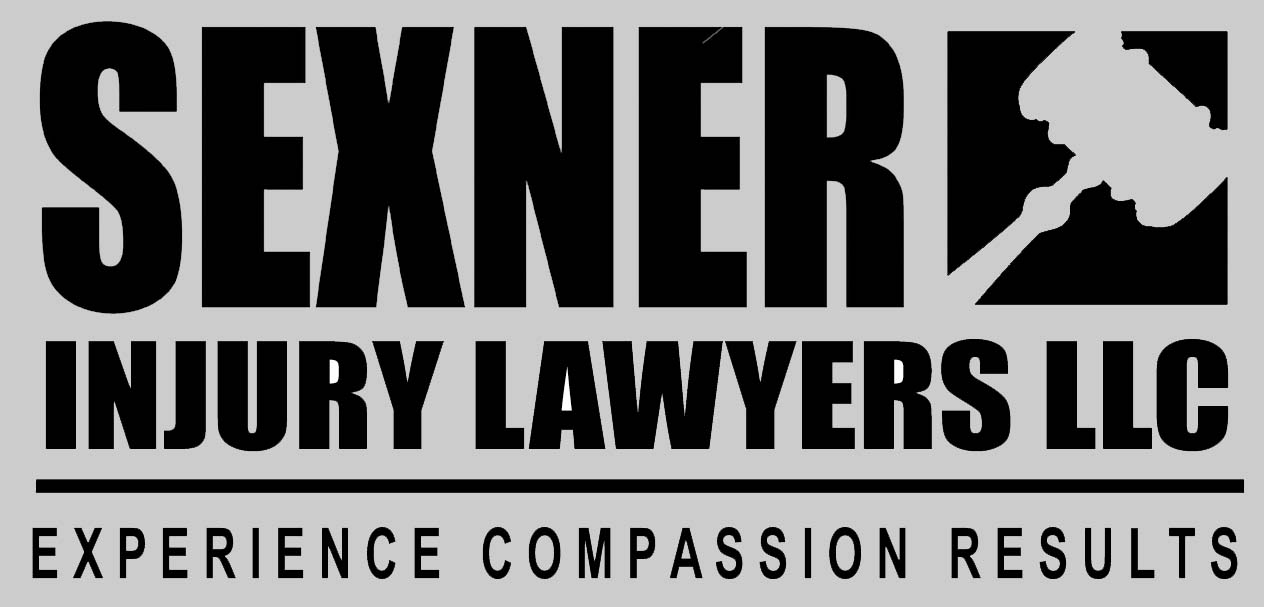
The juvenile justice system is designed with rehabilitation, not punishment, as its primary goal. However, recent concerns have been raised about abuses and deprivations occurring within juvenile detention facilities in Illinois. Notably, the Mary Davis Juvenile Detention Home in Galesburg has come under scrutiny. This article explores these issues, examines similar alleged abuses in other Illinois facilities, reviews related lawsuits, and discusses how such institutions can prevent future misconduct.
For more than 30 years, the law of Sexner Injury Lawyers LLC has been helping clients in similar situations obtain some measure of justice for physical, psychological and sexual abuses committed against them. There are never any attorney fees unless successful. Call us today for caring and confidential assistance at (312) 243-9922.
Abuses at Mary Davis Juvenile Detention Home
Recent reports have highlighted troubling conditions at the Mary Davis Juvenile Detention Home. Allegations include physical abuse by staff members, inadequate medical care, and denial of educational opportunities. Such deprivations not only violate state and federal laws but also undermine the rehabilitative purpose of juvenile detention.
Former detainees have come forward with accounts of being placed in solitary confinement for minor infractions, leading to severe psychological distress. Others have reported insufficient mental health services, despite a clear need for support. Families of these juveniles have expressed frustration over the lack of communication and transparency from the facility's administration.
The situation at Mary Davis reflects systemic issues that, if unaddressed, could have long-term detrimental effects on the youth entrusted to the facility's care. It appears that legal intervention may be necessary to ensure that the rights of these juveniles are protected and that the facility adheres to required standards.
Abuses at Other Illinois Juvenile Facilities
Unfortunately, the problems at Mary Davis are not isolated incidents. Many other juvenile detention centers in Illinois (as well as all across the country) have faced similar accusations such as the Audy Home in Chicago. Here are just a few of the others:
- Illinois Youth Center in Harrisburg: Reports have surfaced about physical and verbal abuse by staff members, overcrowding, and unsanitary living conditions. Detainees have alleged that excessive force is often used to maintain order, resulting in injuries.
- St. Charles Youth Center: Investigations have revealed instances of sexual misconduct, inadequate mental health care, and the overuse of solitary confinement. These practices have raised serious concerns about the violation of constitutional rights.
- Warrenville Youth Center: Allegations include neglect of medical needs, lack of educational programs, and failure to protect detainees from harm. Reports suggest that bullying and violence among detainees are not adequately addressed by staff.
These facilities have been criticized for creating environments that are more punitive than rehabilitative. The consistent pattern of abuses indicates a systemic failure within the state's juvenile justice system.
Types of Abuse at Illinois Juvenile Facilities
Many incidents at juvenile detention facilities in Illinois have raised serious concerns. Some of the allegations include:
- Excessive Use of Solitary Confinement: Facilities have been criticized for isolating youths for extended periods, leading to psychological trauma and developmental issues.
- Sexual Abuse, Assault & Rape: Widespread reports allege a culture of sexual violence in some facilities. One of Sexner Injury Lawyers LLC’s young clients recently settled their case for $4,000,000.
- Physical Abuse by Staff: Reports have emerged of staff members using excessive force, resulting in injuries and fostering a culture of fear among detainees.
- Inadequate Mental Health Services: Many facilities lack sufficient mental health resources, failing to address the needs of youths with psychological and emotional challenges.
- Overcrowding and Unsanitary Conditions: Overpopulated facilities have led to poor living conditions, increasing the risk of illness and negatively impacting overall well-being.
- Lack of Educational Opportunities: Some centers do not provide adequate educational programs, hindering the rehabilitation process and future prospects of the detainees.
- Peer Violence: Failure to prevent and address violence among detainees has resulted in injuries and heightened tensions within facilities.
- Denial of Family Contact: Restrictions on visitation and communication with family members exacerbate the emotional distress of detained youths and impede rehabilitation.
- Improper Use of Restraints: Use of physical restraints in non-emergency situations has led to unnecessary harm and trauma.
These issues highlight the urgent need for reforms to protect the rights and well-being of juveniles in detention facilities across Illinois.
Lawsuits Involving Abuses at Juvenile Facilities in Illinois
Many lawsuits have been filed against Illinois juvenile detention facilities, seeking justice for the affected youths, including those involving:
- Illinois Department of Juvenile Justice (IDJJ): A class-action lawsuit filed against the IDJJ alleged that detainees were subjected to excessive solitary confinement and denied access to adequate education and mental health services. The lawsuit resulted in a consent decree requiring the IDJJ to implement significant reforms.
- Cook County: This case involved a detainee who suffered sexual abuse at the Cook County Juvenile Temporary Detention Center. The lawsuit claimed that the facility failed to protect the detainee from harm and did not have proper protocols in place. A substantial settlement was awarded to the victim.
- Illinois Youth Centers: Detainees filed a lawsuit alleging physical abuse and neglect at the Warrenville facility. The suit highlighted the lack of proper staff training and oversight. The case brought attention to the need for systemic changes in staff hiring and training practices.
- LGBTQ+ Youths: Alleging discrimination and harassment based on sexual orientation and gender identity, this lawsuit led to policy revisions to protect LGBTQ+ detainees and promote inclusivity.
- Denial of Education: Legal action was taken against a facility for failing to provide mandated educational services, resulting in enforcement of educational standards and increased funding for programs.
- Excessive Restraint Use: A lawsuit addressing injuries sustained from improper restraint techniques prompted changes in staff training and restraint policies statewide.
- Inadequate Medical Care: Families sued facilities for neglecting serious medical needs of detainees, leading to improved healthcare services and protocols.
- Racial Discrimination: Allegations of unequal treatment based on race led to legal action and subsequent diversity and sensitivity training for facility staff.
- Detainees with Disabilities: Advocates filed suits to ensure compliance with the Americans with Disabilities Act, resulting in necessary accommodations and support services for detainees with disabilities.
These lawsuits have not only provided compensation to the victims but have also pressured facilities to make necessary changes. Legal actions serve as a critical mechanism for holding institutions accountable and prompting policy reforms.
Preventing Future Abuses in Juvenile Detention Facilities
To avoid recurring abuses, Sexner Injury Lawyers LLC believes that juvenile detention facilities must undertake comprehensive reforms including:
- Enhanced Oversight: Establish independent monitoring bodies to conduct regular inspections and audits. Transparency in operations can deter misconduct and promote accountability.
- Staff Training and Qualifications: Implement rigorous training programs focusing on de-escalation techniques, adolescent development, and trauma-informed care. Hiring practices should prioritize candidates with appropriate educational backgrounds and a commitment to rehabilitation.
- Mental Health Services: Increase access to mental health professionals who can address the psychological needs of detainees. Early intervention can prevent the escalation of behavioral issues.
- Educational Programs: Ensure that all detainees receive quality education that meets state standards. Educational opportunities are crucial for successful reintegration into society.
- Clear Reporting Mechanisms: Create safe and confidential ways for detainees to report abuses without fear of retaliation. Complaints should be promptly investigated by an impartial entity.
- Family Involvement: Encourage family engagement in the rehabilitation process. Regular communication between detainees and their families can provide emotional support and aid in monitoring facility conditions.
- Policy Reforms: Advocate for legislative changes that protect the rights of juvenile detainees. This includes limiting the use of solitary confinement and prohibiting practices that are deemed inhumane.
By implementing these measures, facilities can create a safer, more rehabilitative environment that aligns with the intended purpose of the juvenile justice system.
How Our Attorneys at Sexner Injury Lawyers LLC Can Assist
Navigating the legal landscape surrounding juvenile detention abuses can be complex. Sexner Injury Lawyers LLC is equipped to provide comprehensive legal support in these matters:
- Free Legal Consultation: We offer thorough evaluations of your case to determine the best course of action. Our attorneys will listen to your concerns and provide clear guidance.
- Representation: Our firm can represent juveniles and their families in lawsuits against detention facilities. We are committed to holding institutions accountable for their actions and just recently settled one of our young clients’ cases in the amount of $4,000,000.
- Advocacy: Beyond individual cases, we advocate for systemic reforms to improve conditions within juvenile facilities. Our goal is to effect lasting change that benefits all detainees.
- Support Services: We connect clients with resources for psychological support and rehabilitation services, including victims of sexual abuse recognizing that legal action is just one aspect of recovery.
If you believe that your child or a loved one has suffered abuse while in a juvenile detention facility, it is crucial to act promptly. Legal time limits (statutes of limitation) may apply, and early intervention can prevent further harm.
Abuses and deprivations in juvenile detention facilities not only harm the affected youths but also erode public trust in the justice system. It is imperative that these issues are addressed through legal channels, policy reforms, and institutional changes. By shining a light on these abuses and advocating for the rights of detainees, we can work towards a more just and effective juvenile justice system.
Sexner Injury Lawyers LLC stands ready to assist those impacted by these injustices. Our dedicated team is committed to ensuring that the rights of juveniles are protected and that they receive the fair treatment they deserve.
For legal assistance or to learn more about how we can help, please contact Sexner Injury Lawyers LLC today at (312) 243-9922.

